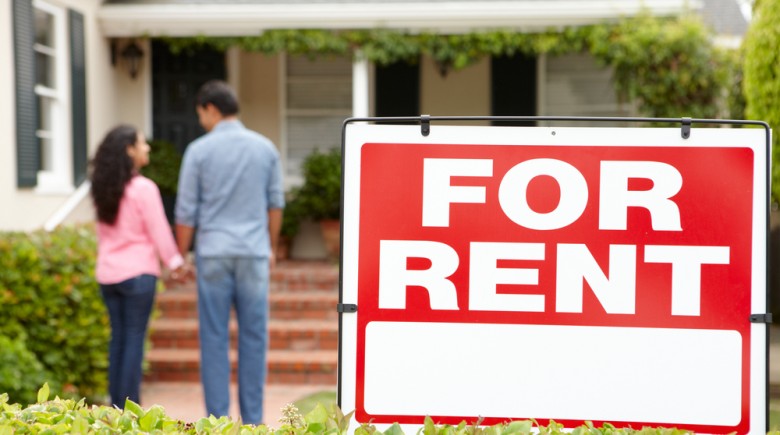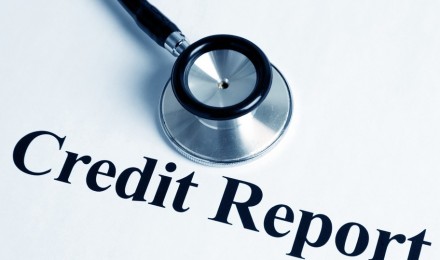You probably understand the importance of having a good credit score when buying a house. But like a lot of people, you may believe that credit doesn’t matter when renting a house or an apartment.
Although renting is practically the only option for people who cannot purchase because of their credit history, some landlords are tightening the credit standards and only approving those with a satisfactory credit history. So, whereas a history of late payments, collection accounts, judgments or a bankruptcy may not have affected a rental application in the past, they may now.
But while it’s challenging to rent an apartment or house with bad credit, there are options.
Obviously, this is much easier to do than say. But if you spend the next 6 to 12 months cleaning up your credit report, you’re in a better position to rent an apartment or house with bad credit. Your credit doesn’t have to be perfect, but at least show that you’re making improvements.
Pay your bills on time and pay down credit card debt. Both moves account for a large percentage of your credit score. Add positive information to your report and you will add points to your score.
The minimum credit score to qualify for a rental varies by landlord. However, adding as little as 10 to 15 points to your credit score can make a world of difference. Even if your credit score isn’t the best, if the landlord sees that your recent activity has been positive, he may loosen the requirements and approve your application.
Depending on the landlord, they may overlook past credit problems if you have a stellar rental history. In other words, if you’ve never been evicted from an apartment and if you’ve always paid your rent on time, this can make up for past mistakes. For this to work, you will need recommendations from your previous landlords.
In the rental world, money talks. Landlords typically require a security deposit, plus first month’s rent. If you have bad credit and feel that this will jeopardize your chances of getting approved for a rental, offer more money.
Doubling the security deposit or paying a higher rent might be enough to compensate for your low credit score. The fact that you’re willing to go into your pocket and pay more shows the landlord your determination, and this can sway the decision in your favor.
If you have bad credit, it may be difficult to rent an apartment if you are the sole name on the lease. But if you have a roommate or if you add a cosigner, the landlord may take a chance with you.
The joint tenant or cosigner must have good credit. These individuals aren’t likely to compromise their high score, which practically guarantees that the landlord will receive a rent check every month.
You probably understand the importance of having a good credit score when buying a house. But like a lot of people, you may believe that credit doesn’t matter when renting a house or an apartment.
Although renting is practically the only option for people who cannot purchase because of their credit history, some landlords are tightening the credit standards and only approving those with a satisfactory credit history. So, whereas a history of late payments, collection accounts, judgments or a bankruptcy may not have affected a rental application in the past, they may now.
But while it’s challenging to rent an apartment or house with bad credit, there are options.
Obviously, this is much easier to do than say. But if you spend the next 6 to 12 months cleaning up your credit report, you’re in a better position to rent an apartment or house with bad credit. Your credit doesn’t have to be perfect, but at least show that you’re making improvements.
Pay your bills on time and pay down credit card debt. Both moves account for a large percentage of your credit score. Add positive information to your report and you will add points to your score.
The minimum credit score to qualify for a rental varies by landlord. However, adding as little as 10 to 15 points to your credit score can make a world of difference. Even if your credit score isn’t the best, if the landlord sees that your recent activity has been positive, he may loosen the requirements and approve your application.
Depending on the landlord, they may overlook past credit problems if you have a stellar rental history. In other words, if you’ve never been evicted from an apartment and if you’ve always paid your rent on time, this can make up for past mistakes. For this to work, you will need recommendations from your previous landlords.
In the rental world, money talks. Landlords typically require a security deposit, plus first month’s rent. If you have bad credit and feel that this will jeopardize your chances of getting approved for a rental, offer more money.
Doubling the security deposit or paying a higher rent might be enough to compensate for your low credit score. The fact that you’re willing to go into your pocket and pay more shows the landlord your determination, and this can sway the decision in your favor.
If you have bad credit, it may be difficult to rent an apartment if you are the sole name on the lease. But if you have a roommate or if you add a cosigner, the landlord may take a chance with you.
The joint tenant or cosigner must have good credit. These individuals aren’t likely to compromise their high score, which practically guarantees that the landlord will receive a rent check every month.






